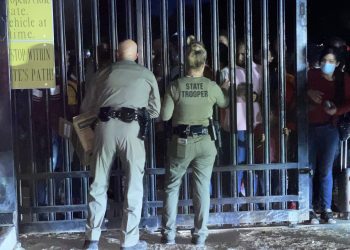DES MOINES, Iowa – Gov. Kim Reynolds signed SF 562, a bill that removes the statute of limitations for various crimes related to the sexual exploitation and abuse of minors, into law.
Iowa is just the 14th state to do so.
The statute of limitations for sexual abuse in the first, second, or third-degree with a minor was 15 years. Now the law will state that any information or indictment “may be commenced at any time after the commission of the offense.”
The statute of limitations was also removed for the crimes of incest with a minor, sexual exploitation of a minor by a counselor, therapist, school employee, or adult providing training or instruction, and human trafficking of minors.
“Today Iowa stands in support of survivors of sexual violence as we become the 14th state to eliminate the statute of limitations for these heinous crimes,” Reynolds said. “I also want to thank Kimberly Gleason, a survivor of sexual abuse as a child, who tirelessly advocated for this bill. Without her bravery and the willingness of so many other survivors to come forward, we wouldn’t be able to hold more abusers accountable for their crimes.”
“Starting today, the trauma that victims of child sex abuse endure will no longer outlive their ability to pursue criminal charges against their offenders. I am so honored and humbled to have had the opportunity to work with both our Iowa Senate and Iowa House, Republicans and Democrats alike, to make this happen,” Gleason said. “Even if a victim does not choose to pursue criminal charges, I pray this will help to restore their power, and may it lead them to find their voice. The number of professionals I have been blessed to have met in this field is incredible, and exemplifies the power of showing up and being willing to walk alongside someone. You never know what one act of kindness will lead to, or the ripple effects it may have.”
The Iowa Senate passed SF 562 unanimously on April 28, and the Iowa House passed the bill 84 to 2 on May 7.
State Reps. Rick Olson, D-Des Moines, and Mary Wolfe, D-Clinton, were the only lawmakers to vote against the bill. Fourteen lawmakers were absent or not voting in the House.
















